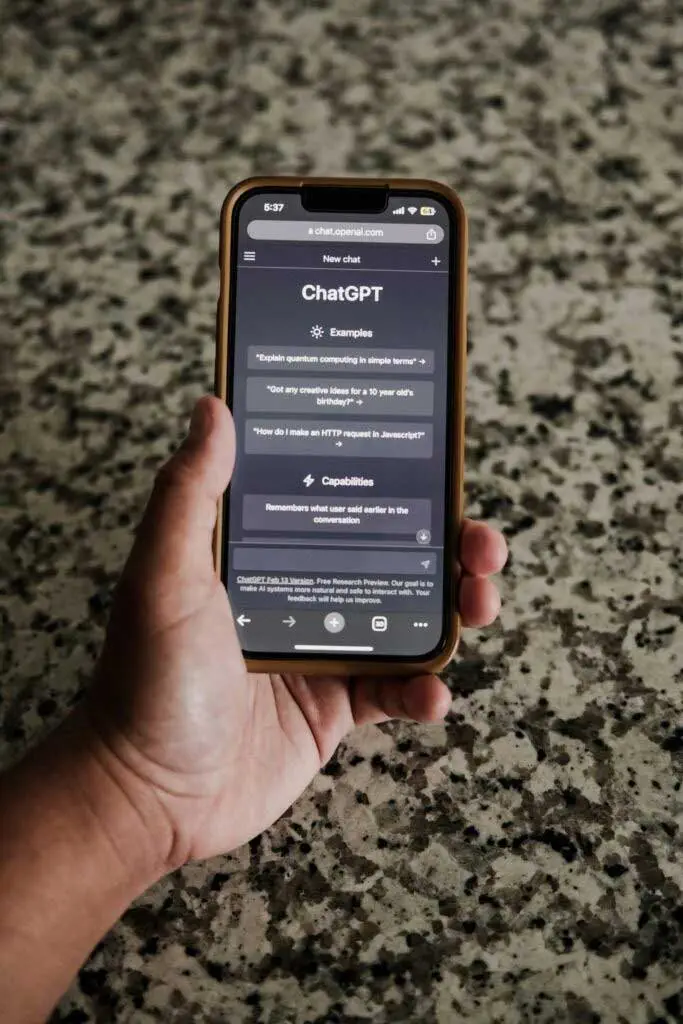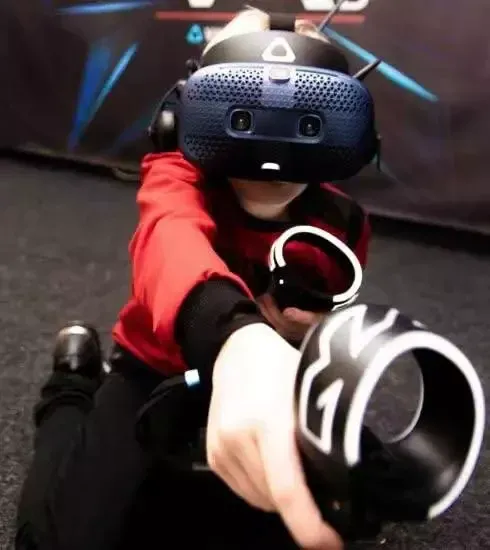AI in Smartphones – How AI is Changing the Smartphone Experience
Artificial Intelligence (AI) has seamlessly integrated into various facets of our daily lives, and smartphones are no exception. Over the past decade, smartphone manufacturers have rapidly adopted AI technologies to enhance both hardware and software experiences. From smarter cameras to more efficient battery management, AI plays a critical role in making our smartphones “smarter” in ways that are not just gimmicks but truly transformative. In this article, we’ll explore the numerous ways AI is revolutionizing the smartphone experience, and why this trend is only set to grow.

AI and Photography: Redefining Mobile Photography
One of the most visible impacts of AI in smartphones is in photography. Modern smartphone cameras, even on mid-range devices, are equipped with AI algorithms that optimize image quality in real time.
- Scene Recognition: AI-enabled cameras can automatically detect the type of scene (landscape, portrait, night, etc.) and adjust the settings accordingly. This means the phone optimizes exposure, contrast, and saturation without manual intervention.
- AI-Powered Image Processing: Post-processing, including noise reduction, color correction, and sharpening, are handled through AI. This is evident in features like Google’s HDR+ and Apple’s Smart HDR, which combine multiple frames to deliver a perfect image.
- Portrait Mode and Bokeh Effects: AI is responsible for detecting edges and creating smooth bokeh effects, offering professional-grade portraits directly from your phone. Depth of field manipulation, once exclusive to DSLRs, is now widely available on smartphones.
- Super-Resolution and Zooming: With AI, smartphone cameras can deliver high-quality images even when zoomed in, compensating for the lack of optical zoom by enhancing details in digital zoom through machine learning techniques.
.
AI Voice Assistants: From Convenience to Necessity
AI-powered voice assistants like Google Assistant, Siri, and Alexa have gone from being mere novelties to integral parts of the smartphone experience.
- Natural Language Processing (NLP): Advances in AI-driven NLP enable these assistants to understand complex commands and even context over multiple queries. For example, you could ask, “What’s the weather today?” followed by, “And what about tomorrow?” The assistant understands the context of “tomorrow” without needing you to specify the day.
- Routine Automation: AI voice assistants are increasingly being used to automate daily routines. Users can set up custom voice commands to trigger multiple actions, such as turning off lights, starting navigation, and playing music simultaneously.
- On-Device AI Processing: Newer AI systems like Apple’s Neural Engine and Google’s Tensor chipset can process voice commands locally, improving both response time and privacy by eliminating the need for cloud processing.


AI in Battery Management: Smarter Power Optimization
A major pain point for smartphone users has always been battery life, but AI is helping address this issue in a big way.
- Adaptive Battery Technology: AI helps smartphones learn your usage patterns and allocates battery resources to the apps you use most, while limiting power to those you seldom use. Android’s “Adaptive Battery” is a prime example, allowing the OS to prioritize energy for apps you interact with more frequently.
- Optimized Charging: AI systems like those found in recent iPhones prevent batteries from overcharging. When you plug in your phone overnight, AI slows down the charging process after 80%, completing it just before you wake up to reduce battery wear.
- Screen Brightness and Performance Tweaks: AI can also adjust screen brightness and manage CPU performance based on your current activities to conserve power without sacrificing usability.
AI for Security: Enhanced Authentication and Fraud Prevention
AI is significantly advancing smartphone security measures, particularly when it comes to biometric authentication and threat detection.
- Facial Recognition: The latest facial recognition systems, like Apple’s Face ID, use machine learning to analyze and learn from your facial features over time, making it harder for someone to spoof. AI can even adapt to slight changes in your appearance, like growing a beard or wearing glasses.
- Fraud Detection: Some smartphones now come with AI-backed software that scans for malware, phishing attempts, and other suspicious activity. AI can detect anomalies in user behavior and app performance, warning users before a potential breach.
Personalization and Recommendations: A Tailored Experience
One of the biggest advantages of AI in smartphones is the ability to offer personalized experiences based on individual preferences.
Keyboard and Typing: AI-powered predictive text and autocorrect features are becoming more intelligent, analyzing not just what words you’re likely to use but also your unique typing style.
Content Recommendations: Whether it’s news, music, or video, AI algorithms curate personalized feeds. YouTube, Spotify, and various news apps all rely heavily on AI to offer users personalized content recommendations based on their preferences and habits.

AI and Gaming: Smoother, Smarter, and More Immersive
The integration of AI into smartphones has significantly improved mobile gaming experiences.
- AI-Powered Game Optimization: Many gaming-centric smartphones, like those from Asus or Razer, use AI to adjust system resources dynamically during gameplay. This ensures that users get the best frame rates and optimal performance without manually tweaking settings.
- AI in Game Design: AI is also being incorporated into the design of mobile games themselves. Whether it’s through more intelligent NPCs (non-playable characters) or adaptive game difficulty that changes based on player skill, AI is making mobile games more engaging.
AI for Accessibility: Empowering More Users
AI in smartphones is also breaking down barriers for people with disabilities, making devices more accessible.
- Voice Commands for the Disabled: AI-powered voice assistants help users with physical disabilities interact with their smartphones without needing to touch the screen. Voice dictation has also improved significantly, enabling hands-free typing.
- Real-Time Translation: AI can provide real-time translation for users who are hearing impaired or communicate in different languages, making communication more inclusive.
- Text-to-Speech and Speech-to-Text: Smartphones can now convert spoken words into text and vice versa with high accuracy, helping people with visual or auditory impairments.

AI’s Continuing Evolution in Smartphones
AI is no longer an abstract concept confined to research labs; it’s an everyday reality enhancing the smartphone experience for millions of users worldwide. From photography and battery management to security and gaming, AI is driving innovation across all facets of smartphone functionality. As AI technology advances, the smartphone will continue to evolve, becoming not just a communication tool, but a personalized assistant tailored to the unique needs of every user.
With the future poised for more developments like on-device AI processing and edge AI, the role of AI in smartphones is only set to expand, making our devices smarter, more efficient, and more integral to our digital lives.
[DISPLAY_ULTIMATE_SOCIAL_ICONS]







